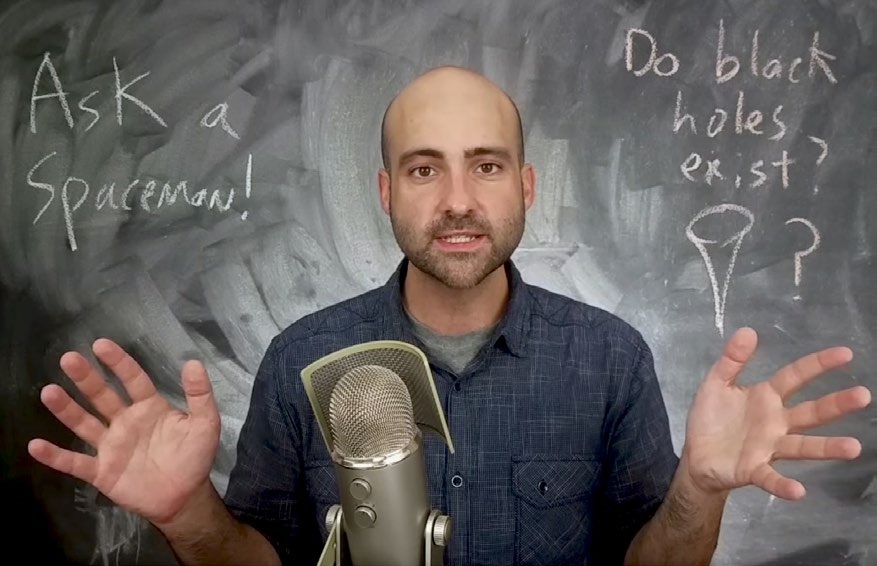'Ask a Spaceman' Series Brings Universe's Weirdest Mysteries to Facebook Watch
Sutter started the podcast version of "Ask a Spaceman" more than three years ago, and since then, in audio and video, he's been using his physics and research skills to bring space to the public. The new show, produced in partnership with Space.com, premieres on Facebook Watch Wednesday (Aug. 15) at 12 p.m. EDT (1600 GMT).
"'Ask a Spaceman' is my opportunity to figure out what people are curious about," Sutter told Space.com. "All the episodes are driven by questions people send me either on social media, or email, or off the website, and it's just — what do you want to know about the universe? I know a thing or two about the universe. Let's have a chat." [8 Baffling Astronomy Mysteries]
Sutter's first episode will discuss Pluto, and from there, his weekly episodes go bigger in scope — from the Big Bang to colliding galaxies to wormholes and much more. He tailors the show to a broad audience, but he isn't afraid of getting into the details.
And Sutter doesn't shy away from complicated topics, either: "The hardest are always the deep existential questions of reality, like, 'Why doesn't quantum mechanics agree with general relativity?' That is a very difficult question to answer in 10 minutes or less," he said.
"Of course, I try," he added. "I'll try anything."
Sutter has a particular expertise within astrophysics, but he goes far beyond that to delve into topics from every corner of physics and space. His training as a physicist equips him to learn about and share all of it, he said.
"Physics is universal. The language we use to describe reality applies all across the universe, in every scenario, and so it's going back to those basics that I really enjoy," he added. "Of this exotic system that has energy and timescales beyond what we can comprehend on Earth — well, we can still grapple with it, with our math. We have the technology, we have the capabilities, and that's why I like to talk about it. That's what I like to highlight."
Breaking space news, the latest updates on rocket launches, skywatching events and more!
"Ask a Spaceman" episodes will be released weekly, and they are free to watch on Facebook. Each episode stretches roughly 6 minutes. Click over to learn about the weird and wonderful physics of space.
"My favorite weird things to explain are the things that shouldn't exist but do," Sutter said. "Things like magnetars, with these magnetic fields that are a trillion times stronger than the Earth['s]. That shouldn't be a thing, and yet there it is. Or the liquid-water ocean underneath the crust of Pluto. Pluto should not have a liquid-water ocean, but it most likely does. It's the strange but true stuff."
Email Sarah Lewin at slewin@space.com or follow her @SarahExplains. Follow us @Spacedotcom, Facebook and Google+. Original article on Space.com.

Sarah Lewin started writing for Space.com in June of 2015 as a Staff Writer and became Associate Editor in 2019 . Her work has been featured by Scientific American, IEEE Spectrum, Quanta Magazine, Wired, The Scientist, Science Friday and WGBH's Inside NOVA. Sarah has an MA from NYU's Science, Health and Environmental Reporting Program and an AB in mathematics from Brown University. When not writing, reading or thinking about space, Sarah enjoys musical theatre and mathematical papercraft. She is currently Assistant News Editor at Scientific American. You can follow her on Twitter @SarahExplains.

